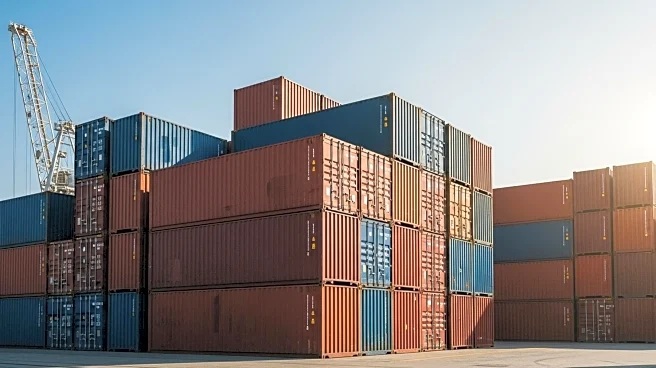What's Happening?
The World Shipping Council (WSC) has reported that over 11 percent of shipping containers have safety issues, based on port state inspection data. This translates to approximately 27.5 million containers annually, given the industry's transport of 250 million boxes each year. The deficiencies include mis-declared or improperly packed cargo, which pose risks to crews, ships, cargo, and the environment. The WSC emphasizes the importance of port state inspectors ensuring compliance with international regulations, focusing on proper declarations and packing of dangerous goods. Recent incidents, such as fires on the Wan Hai 503 and Maersk's Marie Maersk, underscore the potential dangers of these deficiencies.
Why It's Important?
The safety issues identified by the WSC have significant implications for the maritime industry, affecting not only the safety of shipping operations but also the economic and environmental aspects. Mis-declared cargo can lead to severe incidents, such as ship fires, which can result in substantial financial losses and environmental damage. The industry's ability to address these safety concerns is crucial for maintaining operational integrity and protecting maritime workers and ecosystems. The call for stronger safety measures and increased reporting highlights the need for industry-wide cooperation to mitigate these risks.
What's Next?
The WSC is advocating for more comprehensive safety measures and increased data reporting from port states to better understand and address cargo safety issues. Currently, only seven port states report cargo safety data, and the WSC believes that more data would help identify trends and improve safety protocols. The industry may see new regulations and initiatives aimed at reducing the risks associated with mis-declared and improperly packed cargo, potentially involving more stringent inspections and penalties for non-compliance.










